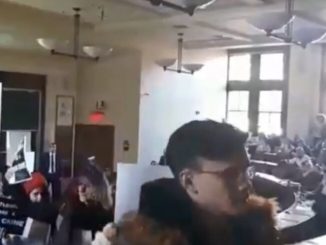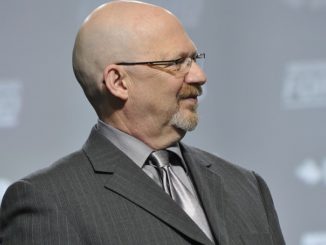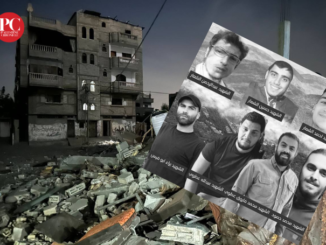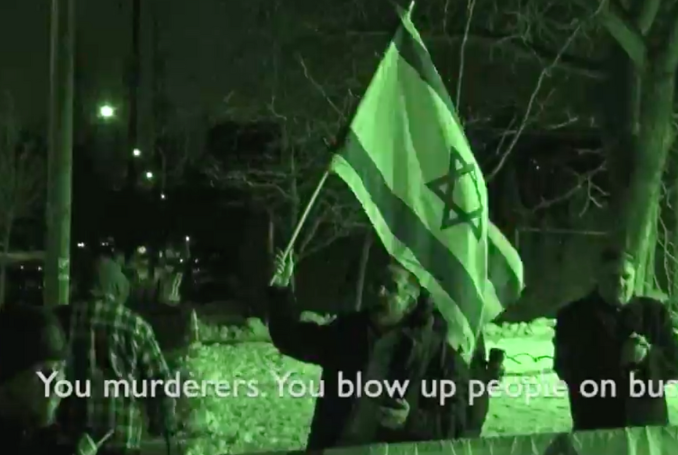
The recent article by Yves Engler, published by The Palestine Chronicle, resonates with me. It reminds me that many in the Canadian establishment not only do not care about Palestinian justice. They will go out of their way to undermine efforts that aim to achieve it.
I was at the pro-Palestinian demonstration Engler talks about. It happened in fact not far where I live in Toronto and in the same riding to be exact.
However, those opposing us at the demonstration—unapologetic Israeli ultranationalists—made me feel that I was in some other world. We were, in addition to being called “murderers”,“terrorists”, and “pieces of garbage”, told by them to “get out of our neighborhood you scum.”
In what democracy is this ok, let alone against those protesting the dispossession and displacement of Palestinians? Why are the Canadian politicians mentioned in Engler’s article not condemning the anti-Palestinian hatred we were subjected to but instead misframing the demonstration so as to suggest it was somehow antisemitic? And perhaps most importantly why do they repeat this kind of behavior and get away with it?
One of the main reasons I believe is that they are continuing to exploit something that Canadian society has not fully grappled with or taken seriously. I will call this an anti-Palestinian presumption of guilt.
It rears its head every time, and there have been many, pro-Palestinian voices are attacked, maligned, degraded or abused. Instead of perpetrators being held accountable their targets or victims are misrepresented, illustrated by social media posts cited by Engler, as the wrongdoers. (How this occurs specifically in the world of Canadian academia is presented well in “Unveiling the Chilly Climate: The Suppression of Speech on Palestine in Canada”, by Sheryl Nestel and Rowan Gaudet of Independent Jewish Voices.)
Those engaged in such misrepresentation also do so confidently. They know they will likely be believed and not pro-Palestinian voices. This works, so to speak, since Canada is still a society where much of the public—reflecting again by the presumption of guilt—views Palestinian solidarity efforts as a “dangerous” or “violent” threat. It’s a warp in the public mind that needs to be corrected.
I’ve talked in previous articles about how this can be done through a responsible school system. In a similar spirit, it can also be done through launching public anti-hate campaigns, as the City of Toronto has commendably—through its Toronto For All initiative—done for several groups. It is yet to do so for pro-Palestinian voices.
Not only would this help the public better understand that the larger Palestinian community, including Palestinians and non-Palestinians alike, are fighting against Israeli apartheid—a crime against humanity. It will also expose and address how power, presently and historically, has tried to undermine this through the presumption of guilt.
I don’t believe that the Canadian public, learning about such underhandedness, will be tolerant of it. Canadians are largely people of conscience. They care about many things that used to be largely hidden or never discussed: racism, violence against women, police brutality, religious intolerance, truth, and reconciliation with Indigenous peoples, to name a few.
But, no, we are not yet at that point where we as a society are pushing back against those unfairly vilifying Palestinian voices. Indeed it has become normalized and those perpetuating it are not being taken to task or being seriously questioned by mainstream media. In this regard such media is complicit with Regavim—the group our demonstration was protesting against and works to expedite the illegal evictions of Palestinians from their homes. For almost a week they spread the myth, in various Toronto locations, that Palestinians are not deserving of the same respect as their more “civilized” Israeli counterparts. Mainstream media, including the Canadian Broadcasting Corporation (CBC)—cherished by many as an outlet that tells the truth (nice and not so nice) about Canadian affairs—has yet to say a word about this. Not even the widely circulated press release and associated letter campaign by Just Peace Advocates, emphasizing both the moral and legal problems of Regavim in Canada, was able to get mainstream media to break their silence.
This has been weighing heavily on me. It confirms that, in addition to Palestinian voices, you can denigrate Palestinians themselves in Canada and not be held accountable.
I purposely avoid using any sort of words like “punished”, which too often emanates from a spirit of revenge. Animated by the spirit people harm others. They do not move towards, much less achieve, accountability. Likewise, I wish no harm against those who verbally attacked me for my solidarity with Palestine. In fact, similar to what well-known musician and pro-Palestinian activist Roger Waters observed in a webinar, I “pity” them.
They’ve been conditioned to believe, perhaps through the Israeli ultranationalist subculture of which they are part, that hating me or Palestine is the right thing to do. It forms part of their identity; without that hate, they somehow feel lost. They might not even know who they are. Vile as that hatred this too is tragic. It pains me to know that anyone is consumed by deep-seated resentment of any kind.
A young man some meters across from me at the demonstration, on the opposite side of the police line dividing us, was among those demanding we get out of the neighborhood. In fact, he entered the area of the demonstration while yelling for us to “f**k off” from his car. He even told one of the officers that approached him shortly afterward—as if he owned the area and was in a position of authority over the officer himself—to rid our presence.
When he was a little calmer and now across from me I told him that I lived in the area. I was hoping that would open some kind of dialogue between us. I also added that my late grandmother or nonna (Italian) cleaned the homes and businesses of the area for many years. In fact, a great deal of the furniture in my home are gifts from those very places.
I’m not a deeply religious person but, in sharing that bit about my nonna, it felt like she was present and giving me the strength to invite this person into dialogue. A friend of mine at the demonstration cautioned against this, saying that it was a waste of time but I still believe it was important to try. Through dialogue, people can, however difficult and slowly, overcome hatred.
Perhaps my friend was right. The young man replied by calling me a “local terrorist” and that my grandmother must be “rolling in her grave.”
All I could ask in turn was, “Do you believe yourself to be a decent person?” He seemed to curse me a little bit more under his breath at this but was not looking my way anymore. He still stood in the same spot but mentally removed himself from the situation by returning to whatever he was doing on his phone.
I wish there was some way of telling him, without being patronizing, that the phone won’t eliminate anti-Palestinian hatred from his heart. And that, like hatred generally does, will distort your sense of reality. That’s why Israeli ultranationalists see Palestinians as beneath them, as somehow lacking in our shared humanity. Moreover, til you allow yourself the opportunity at least to connect with Palestinians as people—not the discriminatory ideas you have of them in your head—you will retain that hate.
The Palestinian struggle for justice, on the other hand, defies hate. That’s ultimately why we were demonstrating. We imagine, desire, and insist on a world where all peoples can live together—where no neighborhood is “off-limits” on account of one’s ethnicity or otherwise.
Likewise challenging both Regavim and the anti-Palestinian presumption of guilt is not only to contest hatred. It’s a refusal to give up on what all of us want despite our unique differences.
To live and care in community.
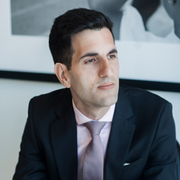
– Paul Salvatori is a Toronto-based journalist, community worker and artist. Much of his work on Palestine involves public education, such as through his recently created interview series, “Palestine in Perspective” (The Dark Room Podcast), where he speaks with writers, scholars and activists. He contributed this article to The Palestine Chronicle.




